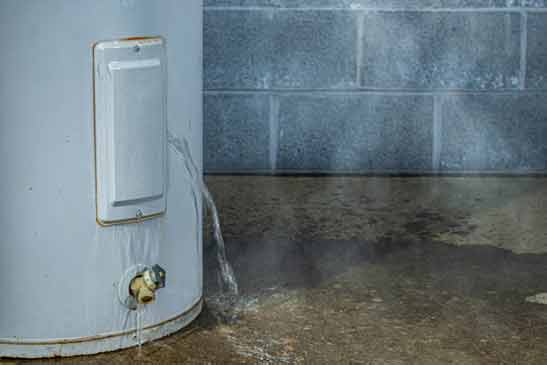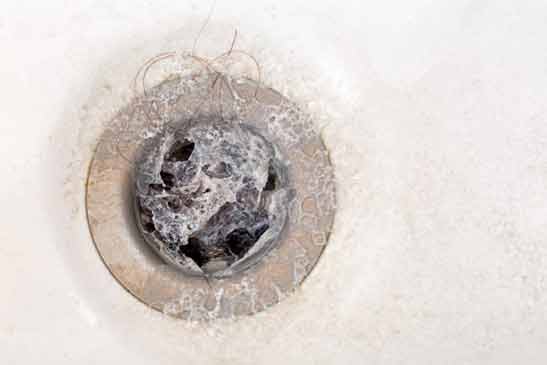Identifying the Source of the Rotten Egg Smell
Discovering a rotten egg smell in your home can be both unpleasant and concerning. The foul odor can permeate your living spaces and leave you wondering about its origin. In most cases, a rotten egg smell in your home is an indication of a gas leak, specifically the presence of hydrogen sulfide gas. This gas is not only noxious, but it can also be hazardous to your health. Therefore, it is crucial to take immediate action when you encounter such an odor in your home.
Before diving into what to do about a rotten egg smell, it is essential to first identify the source of the odor. Here are some possible causes:
- A gas leak
- Issues with your plumbing
- Blocked drains
- Decaying organic matter
Addressing a Gas Leak
If you suspect that the rotten egg smell in your home is due to a gas leak, it is crucial to prioritize your safety above all else. Gas leaks are potentially dangerous and should be handled with extreme caution.
Here are the steps you should take:
- Do not use any electrical appliances or switches. This includes turning lights on or off, using your phone, or utilizing any electrical devices. A spark caused by operating electrical equipment could ignite the gas and cause an explosion.
- Evacuate your home immediately. Ensure everyone in the house, including pets, leaves the premises and moves to a safe location.
- Once you are a safe distance away, call your local gas company or emergency services to report the suspected gas leak. They will dispatch professionals to investigate and resolve the issue.
- Avoid reentering your home until it is deemed safe by the professionals.

If you notice any issues or suspect that your water heater is the source of the odor, it is recommended to contact a professional plumber to assess and repair the problem.
Dealing with Plumbing Issues
In some cases, the rotten egg smell may be due to problems with your plumbing system. This can occur when the water heater’s anode rod reacts with certain bacteria, resulting in the production of hydrogen sulfide gas.
What can you do to address plumbing-related rotten egg smells in your home?
1. Check your water heater:
Inspect your water heater visually. Look for any signs of leakage or damage. If you notice any issues or suspect that your water heater is the source of the odor, it is recommended to contact a professional plumber to assess and repair the problem.
2. Flush your plumbing system:
Flushing your plumbing system can help remove any accumulated bacteria causing the smell. Start by opening all faucets in your home, including both hot and cold water taps. Allow the water to run for several minutes, ensuring it is flowing smoothly and consistently. This process can help clear out any stagnant water or pockets of bacteria.
3. Consider professional cleaning:
If the smell persists after flushing your plumbing system, it may be necessary to seek the assistance of a local plumber. They can perform a thorough cleaning of your plumbing pipes and identify any underlying issues that may be contributing to the unpleasant odor.

When organic matter accumulates and decomposes in your pipes, it can produce hydrogen sulfide gas, resulting in the foul odor.
Clearing Blocked Drains
Another potential culprit for a rotten egg smell in your home is a blocked drain. When organic matter accumulates and decomposes in your pipes, it can produce hydrogen sulfide gas, resulting in the foul odor.
To address a blocked drain:
1. Attempt to clear the blockage:
If you feel comfortable doing so, you can try clearing the drain blockage yourself. Start by using a plunger to create suction and dislodge the blockage. If this method does not work, you can consider using a drain snake or a chemical drain cleaner designed to break down organic matter.
2. Contact a professional plumber:
If your attempts to clear the blockage are unsuccessful or if you are unsure about handling the situation yourself, it is advisable to contact a professional drain cleaning service. They have the expertise and necessary tools to hydro jet drain clean even the most challenging blockages and can ensure that your drains are completely clear.
Removing Decaying Organic Matter
In certain instances, the rotten egg smell in your home may be a consequence of decaying organic matter hidden within your living spaces. This can occur if something organic, such as a food item, has fallen behind furniture or into a wall cavity.
To eliminate the odor caused by decaying organic matter:
1. Investigate the source:
Thoroughly inspect your home, paying close attention to areas where the smell seems to be most intense. Move furniture, check behind appliances, and examine any possible hiding spots. Once you identify the source, remove and discard the decaying material properly.
2. Clean the affected area:
Once the source of the odor is removed, thoroughly clean the affected area. Use appropriate cleaning products and techniques specific to the surface you are cleaning, taking care to eliminate any remaining traces of the foul smell.

Store food properly in airtight containers to prevent odor-causing bacteria from developing.
Preventing Future Rotten Egg Smells
After resolving the issue of a rotten egg smell in your home, it is important to take preventive measures to avoid experiencing it again in the future. Here are some tips:
1. Regularly maintain your plumbing system:
Schedule routine inspections and maintenance for your plumbing system. This will help catch any potential issues early on and prevent the accumulation of organic matter or the growth of problem-causing bacteria.
2. Keep drains clean:
Avoid pouring grease, oils, or food scraps down the drain, as they can contribute to blockages and unpleasant odors. Use drain filters or screens to prevent debris from entering the pipes.
3. Practice proper food storage and disposal:
Store food properly in airtight containers to prevent odor-causing bacteria from developing. Regularly clean out your refrigerator and dispose of any expired or spoiled food promptly.
4. Ensure proper ventilation:
Proper ventilation plays a crucial role in maintaining indoor air quality. Ensure that your home has adequate ventilation in areas prone to moisture, such as the bathroom, kitchen, and laundry room.
By following these preventive measures, you can minimize the likelihood of encountering a rotten egg smell in your home in the future.
To Sum It Up
A rotten egg smell in your home is undoubtedly an unwelcome and concerning occurrence. Whether it is due to a gas leak, plumbing issues, blocked drains, or decaying organic matter, it is essential to take prompt action to identify and address the source of the odor. By following the recommended steps and preventive measures outlined in this article, you can ensure the cleanliness and safety of your living spaces, providing peace of mind for you and your family.
